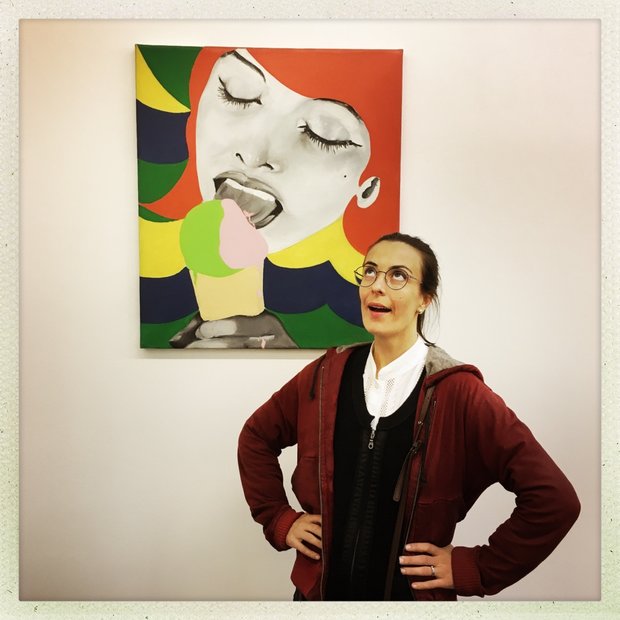

Antonia Wagner in front of a painting by Evelyne Axell Ice Cream, 1964 in Galerie Koenig, Berlin. April 26, 2018 (© Simon Quark)
Female artists have used, appropriated, and subverted the commercialized language of consumption to reflect women's social positions and the degree of their equality and autonomy in consumer societies. While feminism between the 1960s and 1980s was often presented either as a rejection or an affirmation of consumer phenomena, the artistic works of this period express different nuances of feminist consumer criticism, which also explore contradictory meanings of consumption in terms of feminist goals. Feminist discourse since the 1990s showed an affirmative-critical turn to consumption as a creative and self-constructive everyday practice, so that the critical rejection of consumption as a suppressive symptom of capitalism that normalizes everyday practices and (re-) produces gender orders, was broken. But the analysis of perspectives on consumption in the art of the 1960s to the 1980s clarifies how the construction of femininity in consumer cultures was contradictory and overcomes the hitherto uncomplex examination of feminist perspectives on consumption. The work combines artistic and pictorial analysis with sociological questions of gender and class relations with a focus on feminism and gender.
With the selected use of positions in art by Evelyne Axell, Nathalia LL, Carolee Schneemann, Christa Dichgans, Věra Chytilová, Judy Chicago, Martha Rosler, Sanja Iveković, Mitra Tabrizian, Judith Barry and Barbara Kruger, amongst others, Antonia Wagner shows how the practice of consumption is implemented as a self-empowering strategy, but is equally criticized with regards to the reproduction of gender norms.
Tutors: Wolfgang Ullrich (HfG Karlsruhe), Prof. Dr. Hanne Loreck (HFBK Hamburg)